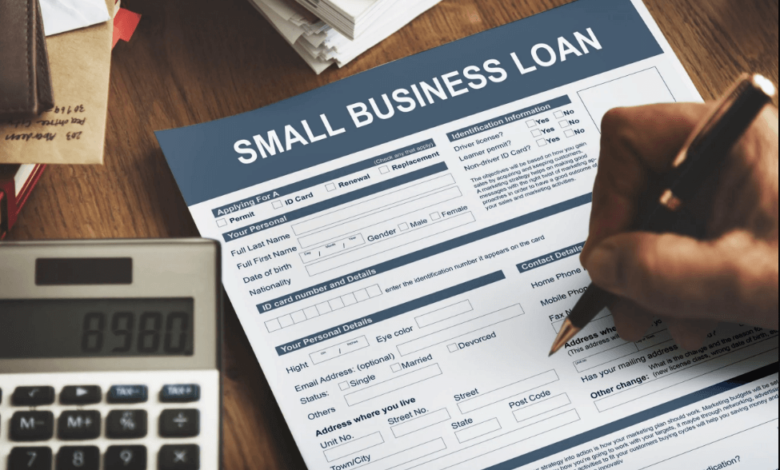Learn All About How to Get a Small Business Loan

Starting a small business can be an exciting endeavor, but it often requires financial support. Securing a small business loan is a common method for entrepreneurs to acquire the necessary capital to establish or expand their ventures. In this article, we will explore the step-by-step process of obtaining how to get a a small business loan, highlighting important considerations and providing valuable insights along the way.
1. Understanding the Importance of how to get a Small Business Loans
As an aspiring or existing how to get a small business loan owner, it’s crucial to grasp the significance of small business loans. These loans provide financial support necessary for various purposes, such as starting a new business, purchasing inventory, expanding operations, hiring employees, or investing in equipment and technology.
2. Assessing Your Business and Financial Needs
Before applying for a small business loan, conduct a thorough assessment of your business and financial needs. Determine the specific purpose for which you require funding, evaluate your current financial situation, and project your future financial needs.
3. Researching Available Loan Options
There are various loan options tailored to small businesses. Research and compare the different types of loans, including traditional bank loans, Small Business Administration (SBA) loans, microloans, and online lenders. Analyze their interest rates, repayment terms, eligibility criteria, and application processes to identify the most suitable option for your business.
4. Gathering and Organizing Required Documents
To streamline the loan application process, gather and organize the necessary documents. These may include personal identification, business licenses, tax returns, financial statements, bank statements, collateral information, and a business plan.
5. Preparing a Comprehensive Business Plan
A well-crafted business plan is vital when applying for a small business loan. Outline your business’s mission, vision, target market, competitive analysis, marketing strategies, financial projections, and repayment plans. A comprehensive business plan showcases your professionalism and demonstrates your commitment to success.
6. Choosing the Right Lender
Selecting the right lender is crucial to ensure a successful loan application. Consider factors such as the lender’s reputation, interest rates, customer reviews, flexibility, and willingness to work with small businesses. Approach lenders who specialize in small business loans and have experience supporting ventures similar to yours.
7. Completing the Loan Application
Thoroughly complete the loan application form, providing accurate and detailed information about your business, financials, and loan requirements. Double-check the application for any errors or omissions before submitting it to the lender.
8. Presenting Your Business and Loan Proposal
Prepare a compelling loan proposal to present to the lender. Clearly communicate your business’s value proposition, financial needs, repayment plans, and potential for growth. Use visuals, charts, and graphs to enhance your presentation.
9. Negotiating Loan Terms and Conditions
After reviewing your loan proposal, the lender may propose specific terms and conditions. Negotiate the terms to ensure they align with your business’s financial capabilities and goals. Discuss interest rates, repayment schedules, collateral requirements, and any other relevant aspects of the loan agreement.
10. Reviewing and Accepting the Loan Offer
Carefully review the loan offer, including all terms and conditions. Seek legal advice if necessary to fully understand the implications. If satisfied, accept the loan offer and proceed with the necessary documentation and procedures to finalize the loan agreement.
11. Fulfilling Loan Requirements
Once the loan agreement is in place, fulfill all requirements outlined by the lender. This may include providing additional documents, maintaining specific insurance policies, or fulfilling specific conditions as stated in the loan agreement.
12. Managing and Repaying the Loan
Effectively manage your loan by keeping track of repayment deadlines and fulfilling your financial obligations. Set up systems to ensure prompt repayment, and maintain open communication with the lender in case of any difficulties or changes in your business’s financial situation.
13. Monitoring and Evaluating Your Business’s Financial Health
Continuously monitor and evaluate your business’s financial health to ensure you stay on track with loan repayments and overall financial stability. Regularly review your financial statements, cash flow, and profit margins to identify areas for improvement and make informed decisions.
14. Seeking Expert Advice
Throughout the process of obtaining and managing a small business loan, consider seeking advice from professionals such as financial advisors, accountants, or business consultants. Their expertise can provide valuable guidance and help you navigate challenges effectively. Read more…
15. Conclusion
Securing a how to get a small business loan is a significant step towards achieving your entrepreneurial goals. By following the outlined process, conducting thorough research, and seeking expert advice, you can increase your chances of successfully obtaining a small business loan and fueling the growth and success of your business.
FAQs
Q1: Can I get a small business loan with bad credit? A1: While having a good credit score is typically preferred, there are lenders who offer small business loans to individuals with bad credit.
Q2: How long does it take to get approved for a small business loan? A2: The approval process for a small business loan can vary depending on the lender and the complexity of your application.
Q3: What collateral might be required for a small business loan? A3: Collateral requirements vary among lenders. Common types of collateral include real estate, equipment, inventory, or accounts receivable. Some lenders may offer unsecured loans that do not require collateral.
Q4: Can I use a small business loan for personal expenses? A4: Small business loans are intended for business purposes. It is important to use the funds solely for legitimate business expenses and not for personal use.
Q5: What if I can’t repay my small business loan? A5: If you are unable to repay your small business loan, it is important to communicate with your lender as soon as possible. They may be able to work out a modified repayment plan or provide alternative solutions. Ignoring the issue may result in additional fees and damage to your credit score.
